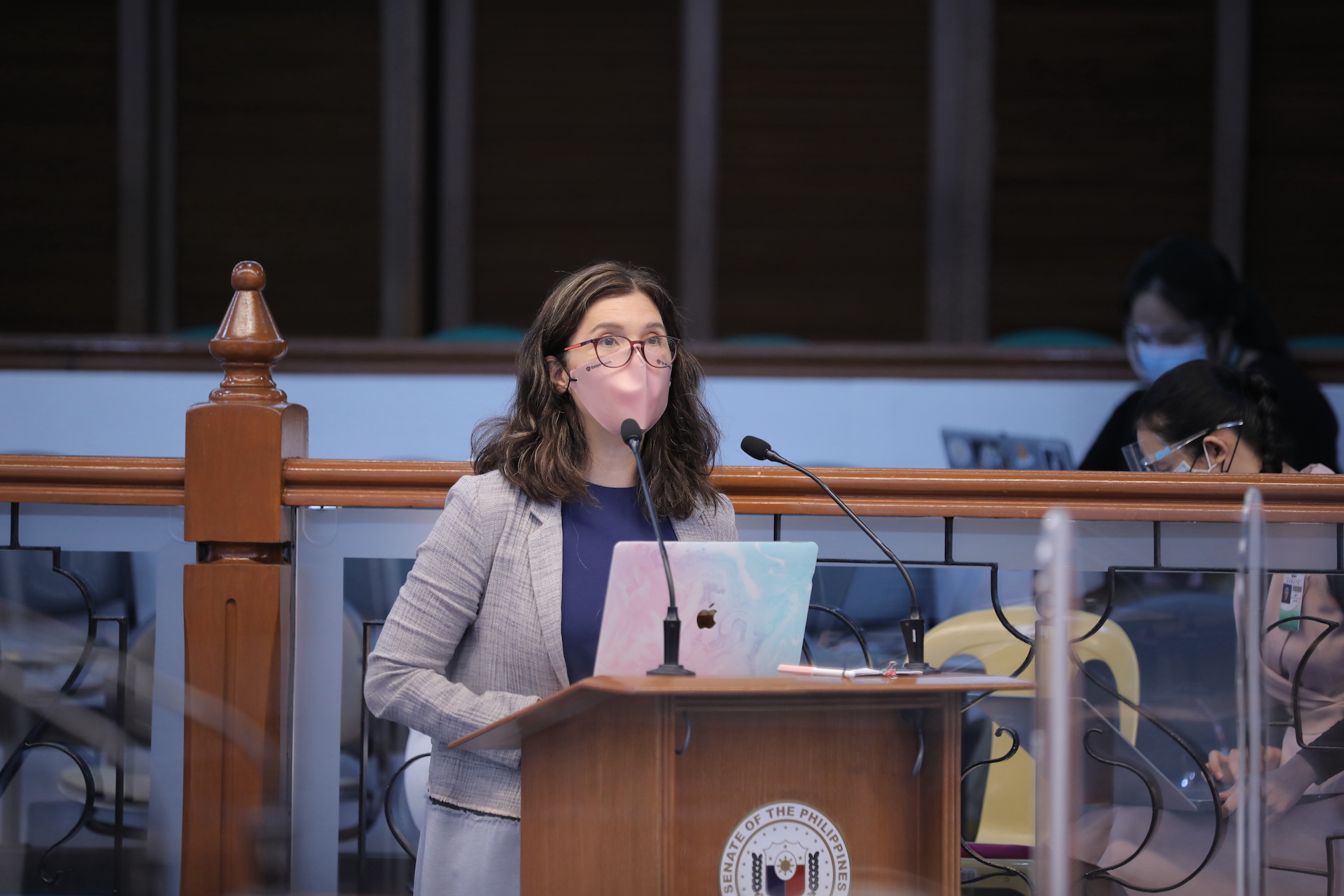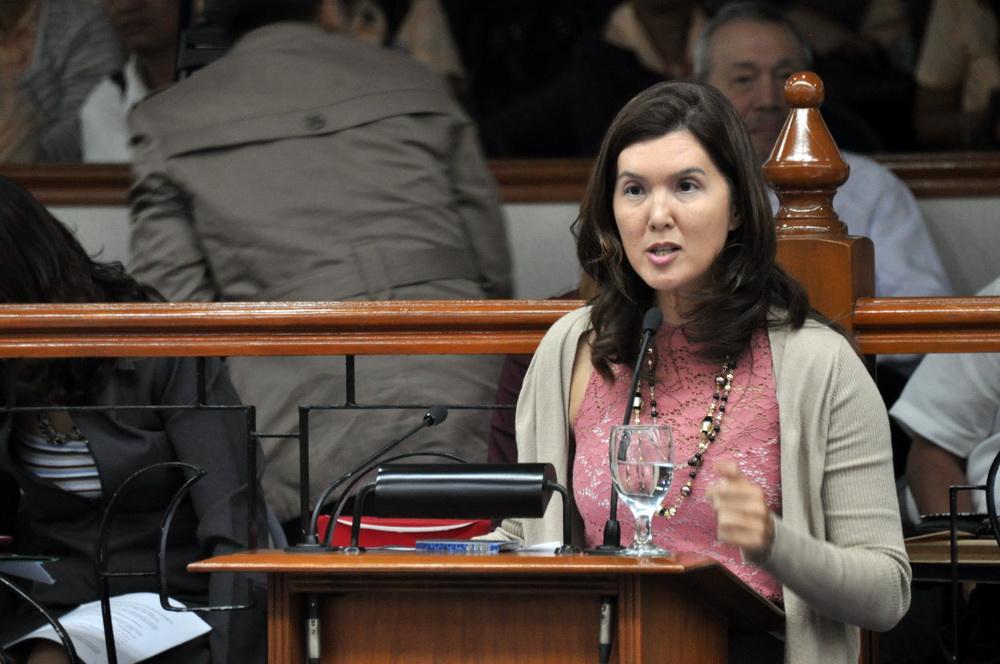I do believe the changes we are proposing will make PhilHealth more responsive to the health needs of the Filipinos.
1 June 2011
Senate of the Philippines
PhilHealth Amendments
On June 1, 2011, I sponsored Senate Bill No. 2849 which amends the existing PhilHealth law or Republic Act No. 7875.
I had to take time to educate myself and spend a lot of long hours, including ice packs for my headaches and at night, after working, drink chamomile tea to help my brain shut down and rest. My staff worked overtime on this bill too and in a future blog, I should write about how they coped with the long hours.
I apologize in advance because this blog entry is a bit heavy and technical. Whether I am drafting a senate bill, writing a committee report or my blog, I always try to simplify the technical terms used. Legal phrases and procedures are easier for me to explain because of my legal background. But medical and financial terms are of a different class altogether. So, I am warning you, there is a fair share of medical and health financing terms used here.
During numerous hearings and technical working group meetings, it was revealed that in the 16 years since PhilHealth has been in effect, it has failed to cover many Filipinos, particularly the poor who are in dire need of health care. Philhealth now provides a wide array of benefits. But without Philhealth membership they have to pay for all their medical expenses.
The other problem is for those who are already members – many are still unable to use their Philhealth benefits because the out-of-pocket expenses they need to shoulder are way too high.
Thus, my bill aims to resolve the current problems as follows:
1. Universal coverage
- Section 17: all Filipinos shall be enrolled in the PhilHealth program.
- All Filipino citizens will have to be properly categorized as (i) indigents, as may be identified by a means test to be conducted by the National Government, (ii) members of the informal sector, (iii) practicing professionals and self-earning individuals, and (iv) the formal sector, or those whose PhilHealth premiums are automatically deducted from their salary.
- The bill further identifies who will pay for the premiums of the different categories:
- Indigent- national government
- Lowest income level earners of the informal sector- local government, legislative sponsor or other sponsors; or
- Able and capable- oneself
- Section 6: mandates that no Filipino shall be denied access to basic health care services, which are identified in the bill. Further, no woman who is about to give birth shall be denied maternal and newborn care.
2. Lower out-of-pocket expenses
- The poorest of the poor are not able to avail of health care services because they need to shoulder more than half of the total expense which is considered out-of-pocket expenses, thus, a shift to case-based payment from the current fee-for-service arrangement is proposed in this bill. And this is where I spent many hours understanding how these payment systems work. I also tried to simplify the definition of the terms.
- Section 2:
- Fee for service payment which is defined in as a fee pre-determined by PhilHealth for every single test conducted, every drugs and medicines given, and in addition, for the professional fee and hospital bill.
- Case-based payment scheme which is where the treatment of a certain disease, from diagnosis to cure is charged a one fixed package cost.
- Section 6: PhilHealth and DOH shall annually study the services being offered to determine its financial sustainability and relevance to health innovations with the end in view of reduced out-of-pocket expenditure, among others.
- Section 15 further directs that the excess reserve funds will be used to meet the principles of the bill, one of which is to reduce out-of-pocket expenses.
3. More efficient allocation of funds
- To reinforce the focus on preventive and primary health care, the bill provides for community-based services in the form of Essential Health Care Packages and per capita payment- based services.
- Section 2:
- Essential Health Packages refers to a variety of health care packages consisting of promotive, preventive, diagnostic, curative and rehabilitative services that respond to the needs of the community.
- Per capita payment refers to a pre-determined fixed rate paid to a health care provider to provide a defined set of services in the community for a fixed period of time for each enrolled individual.
- Capitation. Capitation is the amount paid by PhilHealth to an LGU for every indigent that an LGU enrolls. Section 22: directs the LGUs to invest this capitation fund solely on health infrastructures or equipment, professional fees, drugs and supplies or information technology and database.
4. Other Features of the Bill
a. Reserves
- Under the existing law, Philhealth is allowed to save two years worth of its projected expenditures as “allowable reserve fund.” This has been highly criticized because Philhealth is suppose to spending the funds on health care services instead of saving it as if it were a bank. Thus, under this bill, Philhealth is limited to save for its reserve fund an amount equivalent to projected expenditures for only one year. Any excess in the actual reserves will be used to meet the principles stated in the bill, which is to expand the health care benefits of the people.
b. Information technology
- The bill mandates that PhilHealth should invest in the acceleration of its information technology systems.
- It should maintain and secure a database of all its enrollees to ensure universal coverage.
- The bill obligates the PhilHealth to diligently educate its users of health benefits, and of their rights and privileges under the law.
I am ready to defend this bill on the floor. I do believe the changes we are proposing in this measure will make PhilHealth more responsive to the health needs of the Filipinos. But the filing of this committee report is just part of the process and the bill will now be scrutinized by my colleagues. I am looking forward to their inputs during the periods of interpellation and amendments so we can make this an even better bill.
Full text of Sponsorship Speech of SB No. 2849







